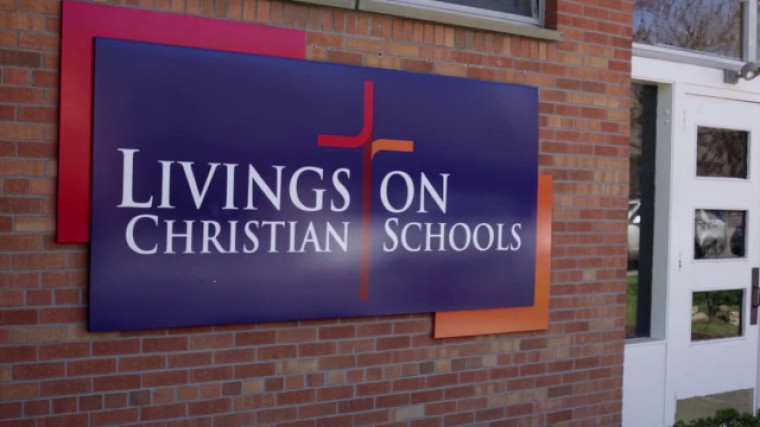Appeals court says Michigan township can prohibit Christian school from relocating to town

An appeals court has ruled that a Michigan township did not violate a Christian school's right to exercise its religious mission when it refused to grant a permit to allow the school to relocate to a church in the town.
Livingston Christian Schools (LCS) filed a lawsuit against Genoa Township in 2015 over its refusal to issue a permit to allow the school to relocate from the former St. Mary School building in neighboring Pinckney to Brighton Church of Nazarene. The board reportedly refused to grant the permit, citing traffic concerns as well as the school's failure to follow proper approval process and incompatibility with the township master plan.
LCS wanted to move students to Brighton, claiming it was necessary because of growing enrollment that required a larger space. However, the township alleged that the school contradicted itself when it later stated that the move was necessitated by "financial challenges" and it needed to move to a new location to spur enrollment growth.
Attorneys with the First Liberty Institute, which is representing LCS, argued that the denial of a permit to the school has put a substantial burden on its right to exist as a Christian ministry, in violation of the Religious Land use and Institutionalized Persons Act.
According to WHMI, a federal judge ruled that the school's claims had no merit and dismissed the case. The school took the case to the U.S. Sixth Circuit Court of Appeals in Cincinnati, which heard oral arguments in April and upheld the ruling of the U.S. District Court on Friday.
In the opinion written by Circuit Judge Ronald Lee Gilman, the three-judge panel concluded that the township can reject the school at the proposed location because two other alternative sites nearby are available for the school.
"This precedent is very dangerous. It states that it is not a burden on religious exercise for a city to ban religious schools, churches, synagogues or mosques from moving into town. In fact, if a city wanted to ban a specific synagogue or mosque from moving into its city limits, the court held such a ban would not be a substantial burden on religious exercise. This is shocking and cannot be allowed to stand," said First Liberty Deputy Chief Counsel Hiram Sasser in response to the ruling.
"Towns who use their zoning laws to keep religious schools and organizations out of their backyard violate federal law and the First Amendment," he added.
 Christians don't have to affirm transgenderism, but they can’t express that view at work: tribunal
Christians don't have to affirm transgenderism, but they can’t express that view at work: tribunal Archaeology discovery: Medieval Christian prayer beads found on Holy Island
Archaeology discovery: Medieval Christian prayer beads found on Holy Island Presbyterian Church in America votes to leave National Association of Evangelicals
Presbyterian Church in America votes to leave National Association of Evangelicals Over 50 killed in 'vile and satanic' attack at Nigerian church on Pentecost Sunday
Over 50 killed in 'vile and satanic' attack at Nigerian church on Pentecost Sunday Ukrainian Orthodox Church severs ties with Moscow over Patriarch Kirill's support for Putin's war
Ukrainian Orthodox Church severs ties with Moscow over Patriarch Kirill's support for Putin's war Islamic State kills 20 Nigerian Christians as revenge for US airstrike
Islamic State kills 20 Nigerian Christians as revenge for US airstrike Man who served 33 years in prison for murder leads inmates to Christ
Man who served 33 years in prison for murder leads inmates to Christ


 Nigerian student beaten to death, body burned over ‘blasphemous’ WhatsApp message
Nigerian student beaten to death, body burned over ‘blasphemous’ WhatsApp message 'A new low': World reacts after Hong Kong arrests 90-year-old Cardinal Joseph Zen
'A new low': World reacts after Hong Kong arrests 90-year-old Cardinal Joseph Zen Iran sentences Christian man to 10 years in prison for hosting house church worship gathering
Iran sentences Christian man to 10 years in prison for hosting house church worship gathering French Guyana: Pastor shot dead, church set on fire after meeting delegation of Evangelicals
French Guyana: Pastor shot dead, church set on fire after meeting delegation of Evangelicals ‘Talking Jesus’ report finds only 6% of UK adults identify as practicing Christians
‘Talking Jesus’ report finds only 6% of UK adults identify as practicing Christians Mission Eurasia ministry center blown up in Ukraine, hundreds of Bibles destroyed: 'God will provide'
Mission Eurasia ministry center blown up in Ukraine, hundreds of Bibles destroyed: 'God will provide' Church holds service for first time after ISIS desecrated it 8 years ago
Church holds service for first time after ISIS desecrated it 8 years ago Burger King apologizes for 'offensive campaign' using Jesus' words at the Last Supper
Burger King apologizes for 'offensive campaign' using Jesus' words at the Last Supper Uganda: Muslims abduct teacher, burn him inside mosque for praying in Christ’s name
Uganda: Muslims abduct teacher, burn him inside mosque for praying in Christ’s name